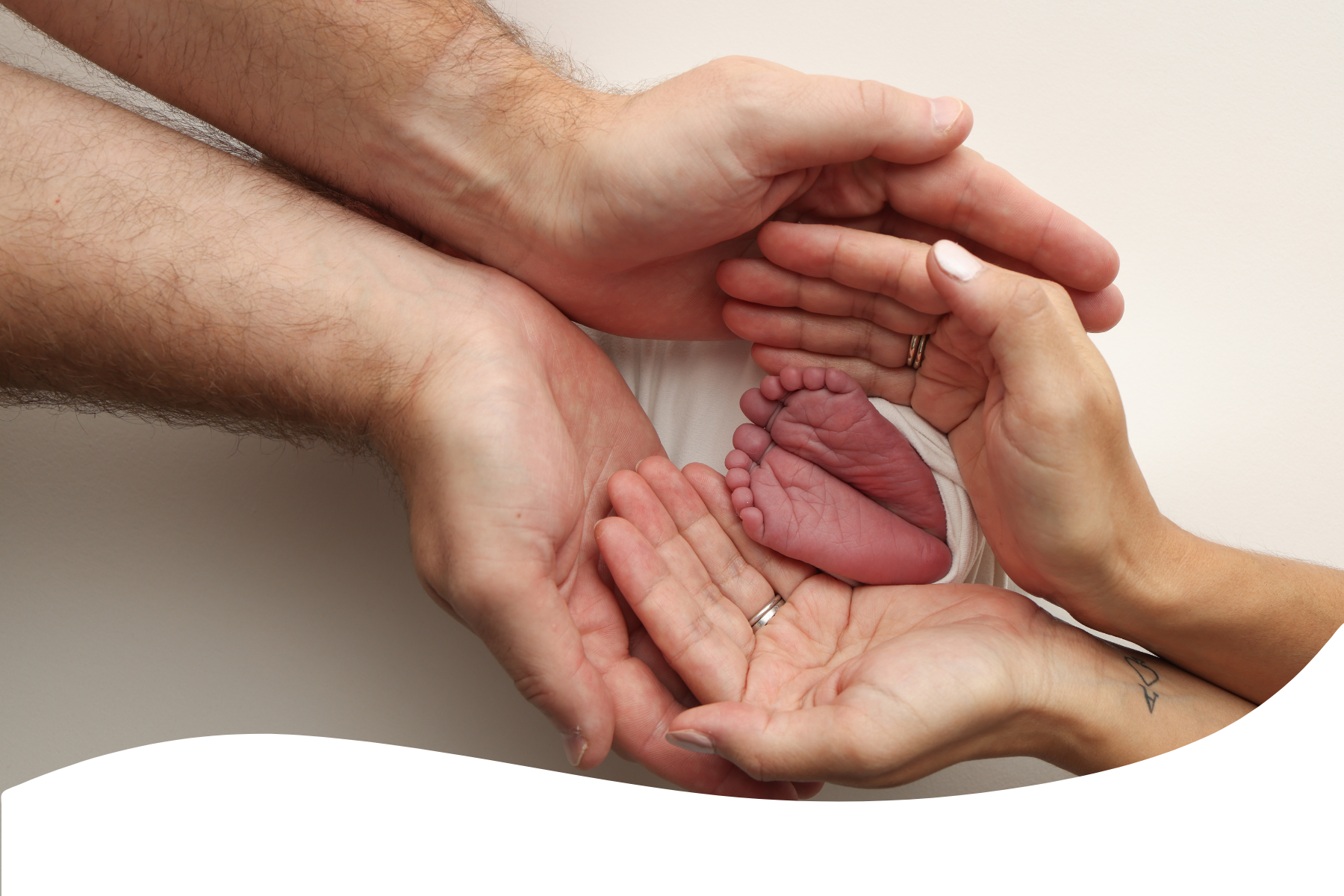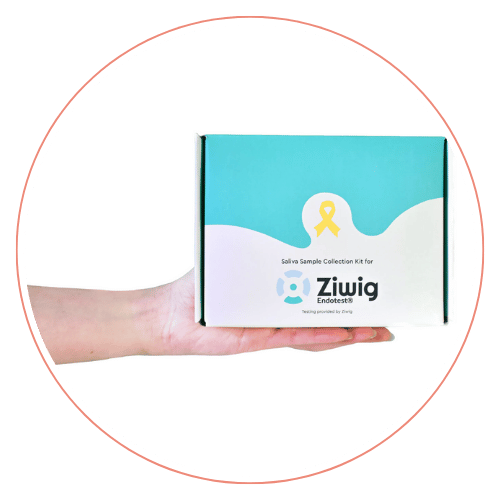Understanding Endometriosis

Understanding Endometriosis

UNDERSTANDING THE BASICS OF A COMPLEX CONDITIONWhat is Endometriosis?
This tissue can appear on the ovaries, fallopian tubes, the outer surface of the uterus, the bowel, bladder, and in rarer cases, other parts of the body.
Unlike normal endometrial tissue that sheds during menstruation, endometriosis tissue has no way to exit the body. This leads to inflammation, scar tissue, cysts (endometriomas), and in some cases, adhesions (organs sticking together).
It affects approximately 1 in 10 women of reproductive age globally — including in Ireland and the UK — yet it often takes 7–10 years to be diagnosed.

RECOGNISING THE SIGNS IN YOUR OWN BODYCommon Symptoms
- Chronic pelvic pain (especially before and during periods)
- Painful periods (dysmenorrhea)
- Pain during or after sex (dyspareunia)
- Heavy or irregular periods
- Pain when passing urine or during bowel movements (especially during menstruation)
- Bloating or abdominal distension (often called “endo belly”)
- Chronic fatigue
- Digestive issues (diarrhoea, constipation, nausea)
- Infertility or difficulty conceiving
Importantly, the severity of symptoms doesn’t always correlate with the extent of the disease. Some women with severe endometriosis have mild symptoms — and vice versa.



What Causes Endometriosis?
It’s important to note that none of these theories alone fully explain all cases. Endometriosis is a complex condition, and its development is likely influenced by a combination of genetic, hormonal, immunological, and environmental factors.
What is certain, however, is that endometriosis is not caused by anything a person has done. It is not due to lifestyle choices, poor diet, or lack of exercise — and it is most certainly not “just bad periods.”

How is Endometriosis Diagnosed?
Traditionally, diagnosis has required a laparoscopy — an invasive surgical procedure where a camera is inserted into the pelvis to look for lesions. This is still considered the gold standard but can involve long waiting lists in public systems like the HSE in Ireland or the NHS in the UK.
More recently, non-invasive tests such as the Ziwig Endotest have emerged as innovative options. Using a simple saliva sample, the Endotest analyses microRNA markers to detect signs of endometriosis with high accuracy — offering a faster, less invasive path to clarity.

How is Endometriosis Diagnosed?
Traditionally, diagnosis has required a laparoscopy — an invasive surgical procedure where a camera is inserted into the pelvis to look for lesions. This is still considered the gold standard but can involve long waiting lists in public systems like the HSE in Ireland or the NHS in the UK.
More recently, non-invasive tests such as the Ziwig Endotest have emerged as innovative options. Using a simple saliva sample, the Endotest analyses microRNA markers to detect signs of endometriosis with high accuracy — offering a faster, less invasive path to clarity.


How is Endometriosis Treated?

Pain Management
- Anti-inflammatories (e.g. ibuprofen)
- Hormonal contraceptives to regulate or suppress periods
- Gonadotropin-releasing hormone (GnRH) analogues

Surgical Options
- Laparoscopic surgery to remove endometrial tissue
- In severe cases, hysterectomy (removal of the uterus)

Fertility Support
- Referral to fertility specialists if conception is difficult

Lifestyle & Holistic Support
- Diet changes
- Pelvic physiotherapy
- Counselling or mental health support
- Support groups and peer communities (Endometriosis Association of Ireland, Endometriosis UK)

Pain Management
- Anti-inflammatories (e.g. ibuprofen)
- Hormonal contraceptives to regulate or suppress periods
- Gonadotropin-releasing hormone (GnRH) analogues

Surgical Options
- Laparoscopic surgery to remove endometrial tissue
- In severe cases, hysterectomy (removal of the uterus)

Fertility Support
- Referral to fertility specialists if conception is difficult

Lifestyle & Holistic Support
- Diet changes
- Pelvic physiotherapy
- Counselling or mental health support
- Support groups and peer communities (Endometriosis Association of Ireland, Endometriosis UK)


Living With Endometriosis
In Ireland and the UK, awareness is growing — but many women still face long delays in getting help. If you believe you have endometriosis, advocate for yourself. Keep a symptom diary. Speak with your GP. You are not alone.
Living With Endometriosis
In Ireland and the UK, awareness is growing — but many women still face long delays in getting help. If you believe you have endometriosis, advocate for yourself. Keep a symptom diary. Speak with your GP. You are not alone.

How Endotest Can Help

Trusted Resources
Endotest.ie is here to educate, support, and empower. If you’re living with pain, uncertainty, or unanswered questions — this is your space to begin seeking answers.



What You Need to Know Before Taking Endotest
Endometriosis is a condition where tissue similar to the lining of the womb grows outside the uterus. It can cause pain, fatigue, and fertility issues. This tissue responds to hormones just like the womb lining, but has no way to exit the body, leading to inflammation and scarring.
Typical symptoms include chronic pelvic pain, painful or heavy periods, pain during sex, digestive issues, fatigue, and difficulty conceiving. Some people also experience back pain or pain during urination or bowel movements.
Traditionally, diagnosis requires a laparoscopy (a surgical procedure). However, newer non-invasive options like the Ziwig Endotest, available through our partner clinics, offer a quicker and surgery-free alternative using a saliva sample.
Endometriosis affects approximately 1 in 10 women and people assigned female at birth — often during their reproductive years. In Ireland and the UK, it’s widely underdiagnosed due to lack of awareness and long waiting times for specialist care.
The exact cause is unknown, but factors like genetics, hormone levels (especially oestrogen), immune system issues, and retrograde menstruation are believed to play a role. It’s not caused by anything you’ve done or lifestyle choices.
Yes, endometriosis can make it harder to conceive by affecting the ovaries, fallopian tubes, and pelvic environment. However, many women with endometriosis do go on to have children — naturally or with fertility support.
There’s no cure, but treatment options include hormonal therapy, pain relief, lifestyle support, and surgery. Management is highly individual — your treatment plan will depend on your symptoms and goals (e.g. pain relief vs. fertility).
No. Endometriosis is a chronic medical condition that can affect many aspects of your life. While painful periods are one symptom, it often involves much more — like fatigue, digestive problems, and pain between cycles or during sex.
It's Time to Feel Heard
Speak with the Endotest.ie Team, or contact a partner clinic to learn if the Endotest is right for you.
📧 Email: endotest@htslabs.ie
📍 Find a Clinic









